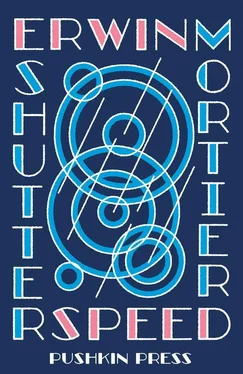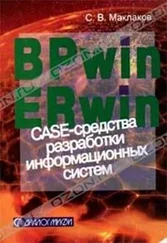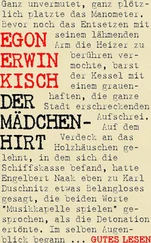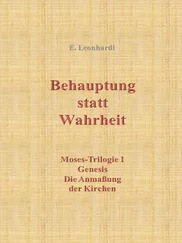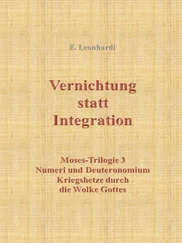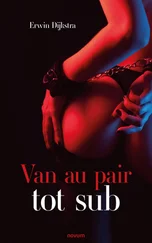I drew my head in as far as it would go.
‘Look, Joris! A visitor for you,’ called Uncle.
I twisted round in my chair and saw ankle straps with glittery studs, the deep tan of her legs, the vibrant pink of her dress, the pearls at her throat, and then the thick locks of hair by her cheekbones, just like in her wedding picture.
‘Hello, Joris,’ she said, smiling. ‘Aren’t you glad to see me?’
I gazed up into her grey eyes, grey like mine.
‘Hello, Ma,’ I said.
THEY WOULD NOT STAY LONG, NO LONGER THAN COURTESY required.
‘Take a seat, take a seat!’ cried Uncle.
His heartiness sounded a mite too enthusiastic to convince me.
The aunts stopped cooing. My mother’s brother took a seat near Uncle Werner’s cousins, who were discussing their homing pigeons. Their voices trailed off, and they sat with their elbows on their knees studying the grass at their feet, at a loss for a topic of conversation that might appeal to the city type in black shirt and gold-rimmed sunglasses, whose pointy calfskin ankle boots gave off the sweet smell of shoe polish when he swung one leg over the other.
He drew a metal case from his breast pocket, snapped it open in the palm of his hand and, with an overly genteel flourish, offered the cousins a cigarette, for which they stammered their thanks.
They were country folk, sometime farmers who now held jobs or ran small businesses as Uncle did, but they had never quite uprooted themselves from the land that had been ploughed by generation upon generation of their forebears. Ungainly men, gnarled like pollard willows by a boyhood of hard graft on farms, where the odour of the stables mingled with their sweat as they slept, where hens clucked beneath the window and the clock in the hallway ticked away on its rounds of days punctuated by the clatter of pails and churns.
My mother, who had seated herself at my side, draped her arm over the back of my chair. I edged forward, wary of her dizzying nearness and the floaty, almost gravitydefying manner in which she moved and spoke.
‘Sponge or Saint-Honoré?’ enquired Aunt, indicating the cakes.
She opted for the sponge.
‘They’re both very light,’ Aunt assured her, for she was rather proud of her Saint-Honoré, which consisted of cream puffs piled into a pyramid. ‘I used low-fat cream, and marge in place of butter.’
‘Sponge,’ repeated my mother, ‘I’d prefer the sponge.’
‘I say, Werner, there’s been some news about the headstone,’ said her brother, emitting a cloud of smoke which drifted off over his shoulder towards the chicken run. ‘Remind me to fill you in before we go.’
He held the stub of his cigarette between nicotinestained fingers and raised it to his mouth. His features twisted briefly into a scowl, which was all the more impressive for the dark sunglasses and the pencil moustache pleating like a concertina as he inhaled.
Uncle nodded. ‘Will do.’
They must have been in touch with her some time earlier, without my knowledge. They had not called me as they normally did when they had her on the phone, for me to say hello to her in some far-off place and to hear her reply while the line hummed and crackled, as if there were stars imploding in the immeasurable distance separating us during our halting exchange, or long-tailed comets zipping over the Pyrenees.
It was always a relief to be able to pass the receiver to Uncle or Aunt and just stand there listening to the rest of the conversation, even if it was only half of it, for it was the half that was familiar to me. Usually I would hear Aunt telling her I was still eating well, but that I was a bit of a rascal at school.
Once I heard Aunt say, ‘Measles? What measles? An epidemic, you say? But he had it five years ago, Francine. You can’t get measles twice, you know.’
One of Aunt’s sisters asked my mother how she was getting on in Spain. My mother concentrated on cutting her slice of cake with the side of her fork, pretending not to hear.
Her brother blew out a cloud of smoke and said: ‘Spain’s finished.’
An uncomfortable silence ensued.
‘Joris,’ said my mother, ‘come here with your face, will you.’
She took a dainty handkerchief smelling of violets and brushed the crumbs from the corners of my mouth.
Aunt began to clear the table, making more clatter than usual as she collected spoons and forks on top of the stack of used plates.
‘Can I help?’ offered my mother, rising.
‘Not to worry,’ said Aunt Laura.
My mother sat down again, laid her arm over the back of my chair as before and trailed her fingers over my shoulder from time to time while the table talk continued.
When I went up to my room afterwards, she was there. I had seen her from halfway up the stairs, standing beside my bed and glancing about the room, at the furniture, the walls, almost as if she had stepped into a picture gallery that held little interest for her.
No doubt she had been to the bathroom. Her bag hung on her arm. The suitcase from under my bed was on my writing table. She must have put it there, because I had not touched it for days. The lid was open, and the binoculars had been taken out and placed on my chair. As I reached the top of the stairs I saw her bending over the suitcase. I heard her sigh, with what seemed to me a mixture of sadness and amusement.
‘Did you collect all these things yourself?’ she asked when I came in.
‘I’ve kept all your postcards, too,’ I replied sheepishly, and hated the sound of my voice.
For the next few minutes we stood side by side, heads bowed over the suitcase. I saw myself as a small child in a cotton sunbonnet, sitting beside her on a cloth spread out on a riverbank, gnawing at a crust with my milk teeth. I tottered down a road between her and my father, clinging on to their hands, I dug holes in the earth with toy spades in the garden at the back of a house of which I had only the dimmest memories.
I stirred the photos with my hand.
She sat down on the edge of the bed, having carefully smoothed her skirt over the back of her thighs with both hands. ‘Why don’t you sit here with me for a bit? Come on …’ she said, patting the mattress beside her.
I made her wait while I took one of the elastic bands I used for keeping the photos in place and twisted it round and round my index finger until the tip turned blue.
‘Come on …’ she repeated.
I sat down, released the elastic and savoured the tingling sensation as the blood returned to my fingertip.
‘Joris, look at me for once …’
It was hard not to return her smile, that huge, glorious smile which sometimes lit up her whole face.
The first hint of crow’s feet appeared about her eyes. She must have been in her early thirties at the time. I noticed that she was wearing make-up. It was thinly applied then, but in later years the stuff would be slapped on her face and throat in ever greater quantities, until in the end she became a doll, wrinkle-free and plasticised.
‘What did you do in Spain, then?’ I asked.
I saw a shadow pass over her irises. She turned her face to the window.
‘Nothing very sensible,’ she said after a pause.
She looked at me again, rested her hand on my shoulder and stroked my earlobe with her fingers.
‘I’d like it if you came to live with me again. You’ll be going to a new school a few months from now, anyway. There are good schools in town, your uncles went there too. You can stay with us, our place is far too big for just your uncle and me. You’d have all the space in the world …’
She waited for me to reply. I stripped the elastic band off my finger and stuffed it in my pocket.
‘I’d really like you to be with me. You can come back here as often as you like. I know you like it here, and that they take good care of you.’
Читать дальше
